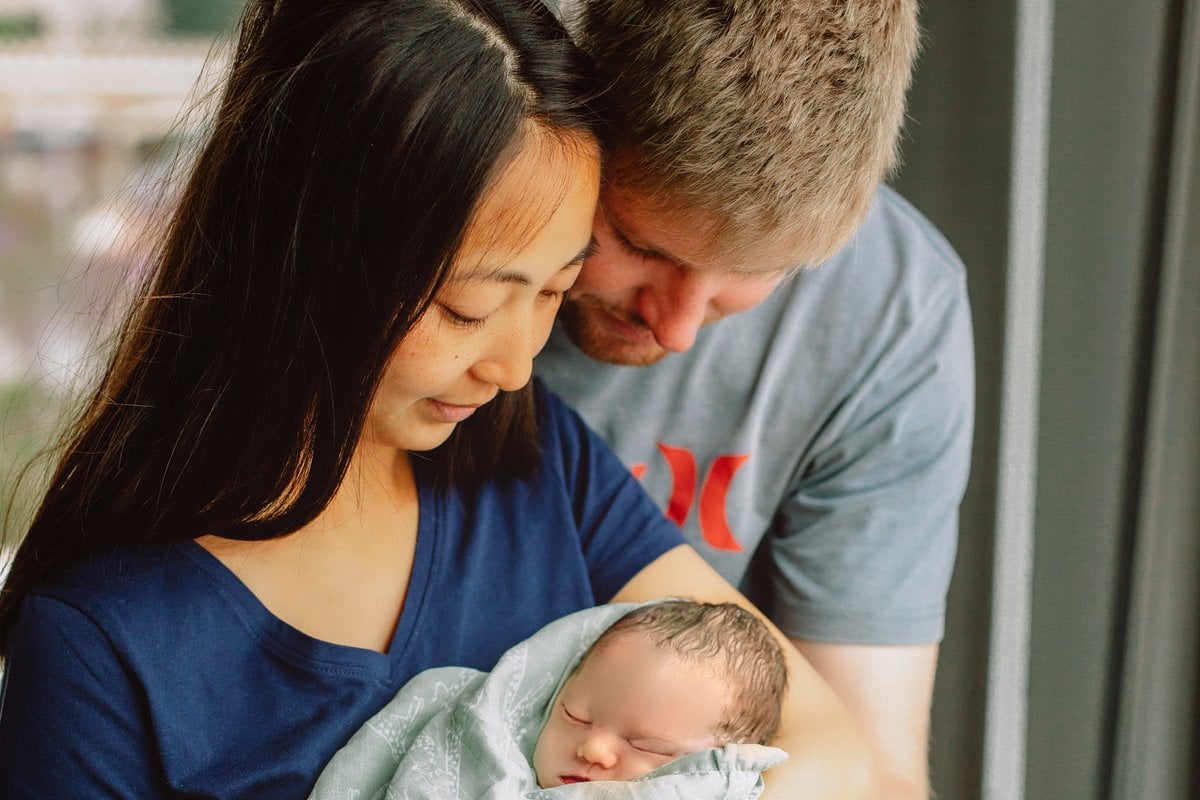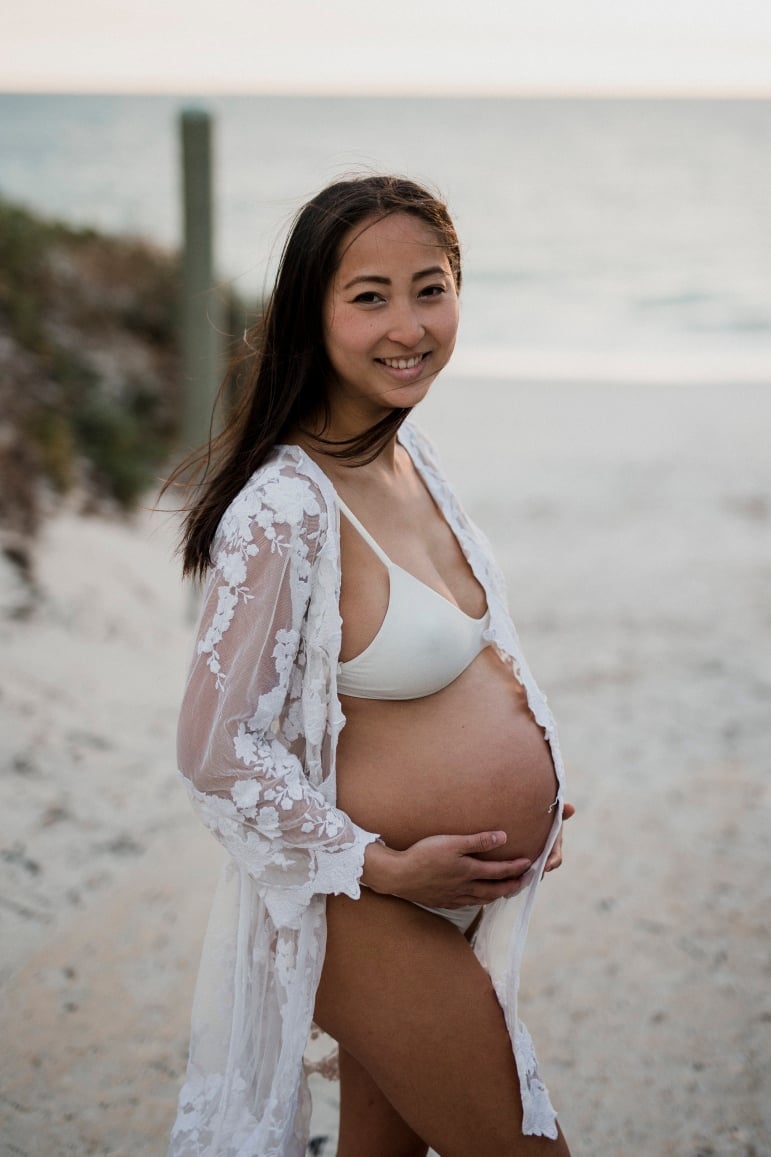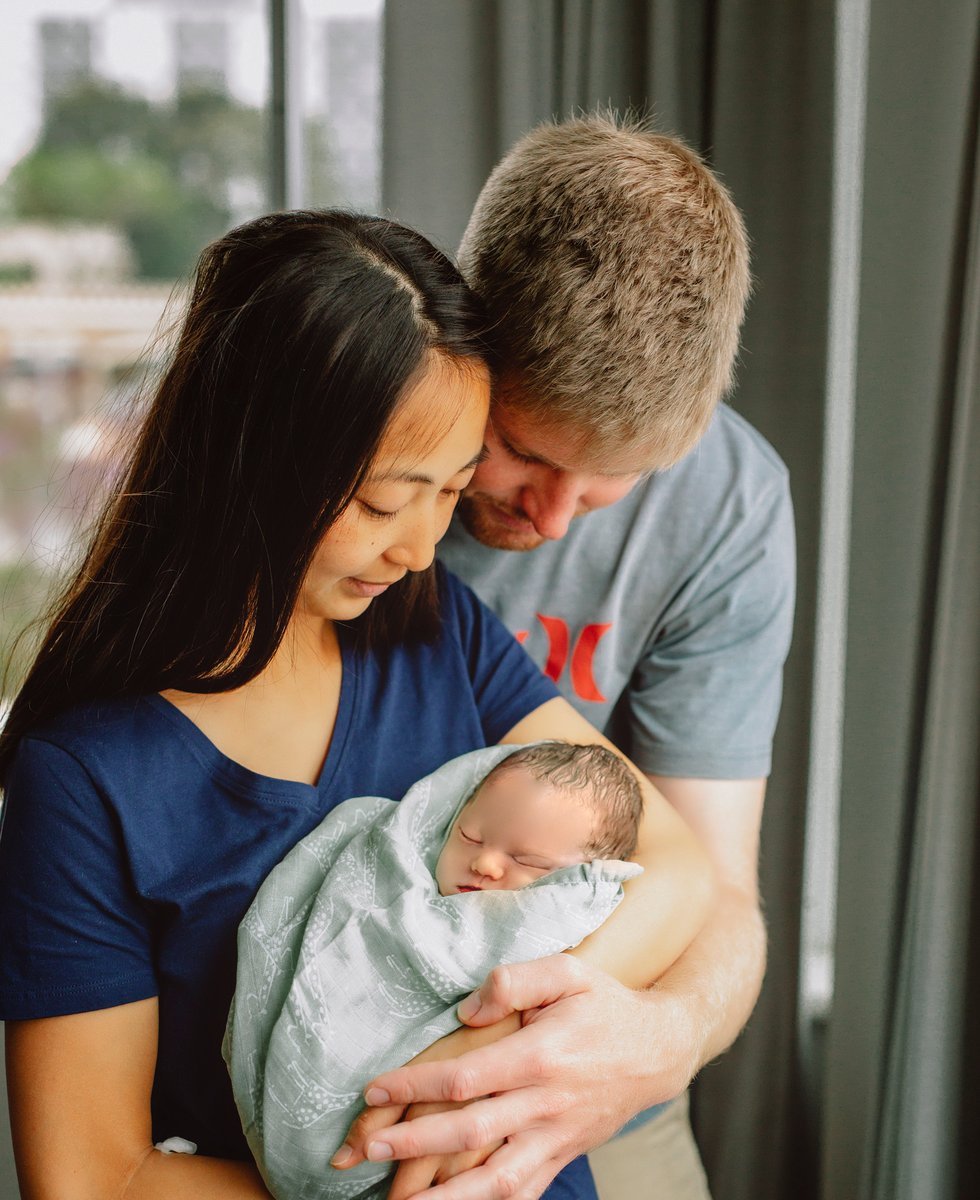
This story deals with the loss of a child and may be triggering to some readers.
October 15 is Pregnancy and Infant Loss Remembrance Day. To help bereaved parents feel less alone and to honour the little lives lost too soon, Mamamia spoke to mum Cathy who wanted to share her experience with daughter Sage who was born sleeping in November 2021.
This is Cathy's story.
After some stress and worry about COVID lockdowns in the lead up to their 2020 wedding, podiatrist and yoga teacher Cathy and FIFO worker Jacob were delighted to quickly fall pregnant.
"We were thrilled to get a positive test so soon after we began trying," 28-year-old Cathy from WA tells Mamamia.
"My whole pregnancy was low risk and I continued to work and stay fairly active throughout. I experienced morning sickness and nausea, but it never got me down because it meant my baby was healthy."
Watch: Mamamia's tribute to the babies we've lost. Post continues below.
Cathy says that their baby daughter progressed well during the pregnancy, but just before 36 weeks, her growth began to slow. She had an ultrasound to see what was happening followed by a CTG scan which confirmed everything was perfectly fine.



Top Comments